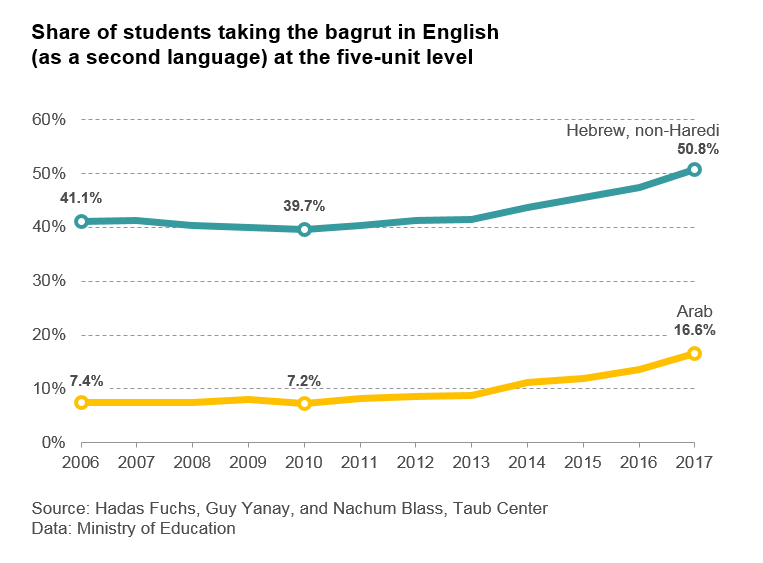The new school year is in full swing, which, for Israeli high-schoolers, means already starting to prepare for the matriculation exams (bagrut) they will take before graduating.
One of the main goals set by the Ministry of Education in recent years was to increase the share of high school students studying math and English at the highest (five-unit) level, as well as the rate of bagrut qualification at this advanced level.
These subjects have become a central focus of the Ministry because they are important for many fields of study in higher education. In addition, studying advanced math and English builds important skills for integration into the labor market and is even associated with higher earning capacity in the future.
After several years of decline, the number of students taking five-units in math and English has improved greatly in the past five years, in both Hebrew and Arab education. There has been a 40% increase in the number of students taking the five-unit level English bagrut exam since 2012. After a sharp decline between 2006 and 2010, the number of students testing at the most advanced math level has risen even more dramatically – 80% since 2012.
Given that the number of students in the 12th grade grew by only 13% during the same period, this is a very notable improvement.

In English, the situation is quite similar; the share of students in the Arab sector studying English at the highest level is much lower than in the Hebrew sector – under 17% in 2017, compared with about half of the students in non-Haredi Hebrew education. Nonetheless, it is important to note that the 2017 rate in Arab education is more than double the rate only seven years earlier, so this is a marked improvement and the situation seems on track to continue improving.

Among Bedouin students in particular the changes over the past decade or so have been drastic; between 2006 and 2017, the number of Bedouin students in the 12th grade almost doubled, the number of students with bagrut qualifications rose 2.5-fold, the number taking five units in math rose 4-fold, and the number taking five units in English increased more than 11-fold.
Another interesting finding is that almost all of the students taking advanced math are either enrolled in technological education (the vast majority in high technological tracks) or are science majors in an academic track. In fact, only 4.4% of those who took five units in math were enrolled in non-science academic majors.
Though large gaps still remain across sector and study track, the impressive increases in the number of Israeli high schoolers taking math and English at the five-unit level indicates that the Ministry of Education and its leaders have set concrete goals and that they have the means and the ability to achieve them.


